Dishwashers are designed to make life easier by handling the messy task of cleaning dishes, but many people unknowingly develop habits that reduce the machine’s efficiency and overall lifespan. A dishwasher that could otherwise last 10 to 15 years may fail much sooner if it is not properly cared for. From loading mistakes to neglecting basic maintenance, these small daily oversights can add up to costly repairs or premature replacement. Here are 12 common habits that might be silently shortening your dishwasher’s life.
1. Overloading the Dishwasher
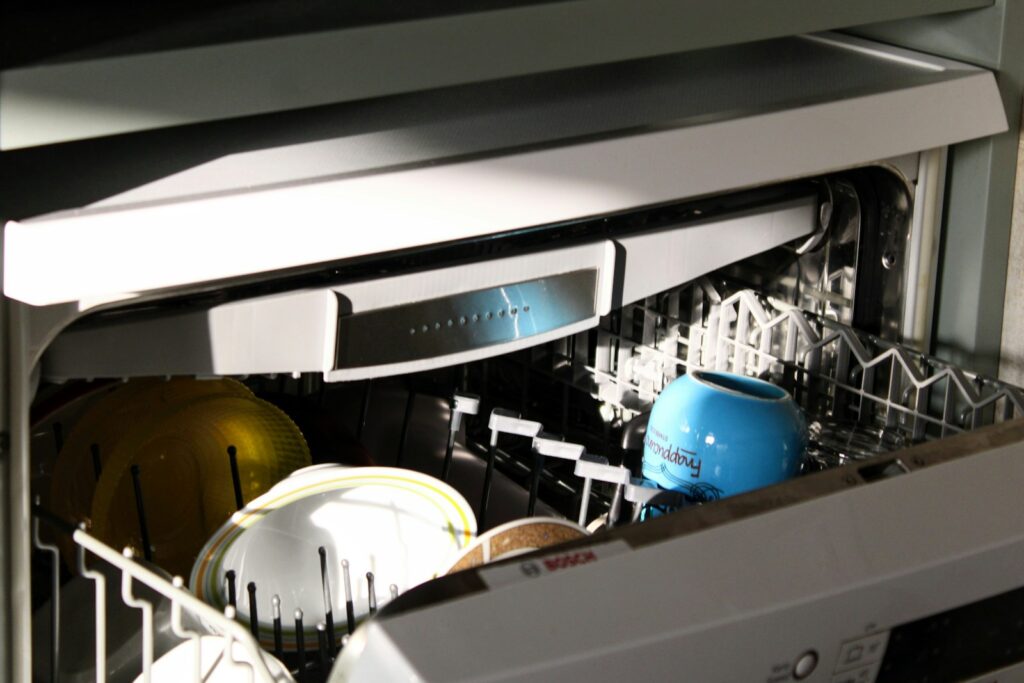
Stuffing too many dishes in one cycle may feel efficient, but it forces your dishwasher to work harder than it should. Overloading blocks water spray and detergent from reaching every item, leaving dishes dirty and making the machine repeat cycles. This not only wastes energy and water but also puts strain on the pump and spray arms. Over time, this stress can wear out critical parts and lead to breakdowns much earlier than expected.
2. Pre-Rinsing Every Dish
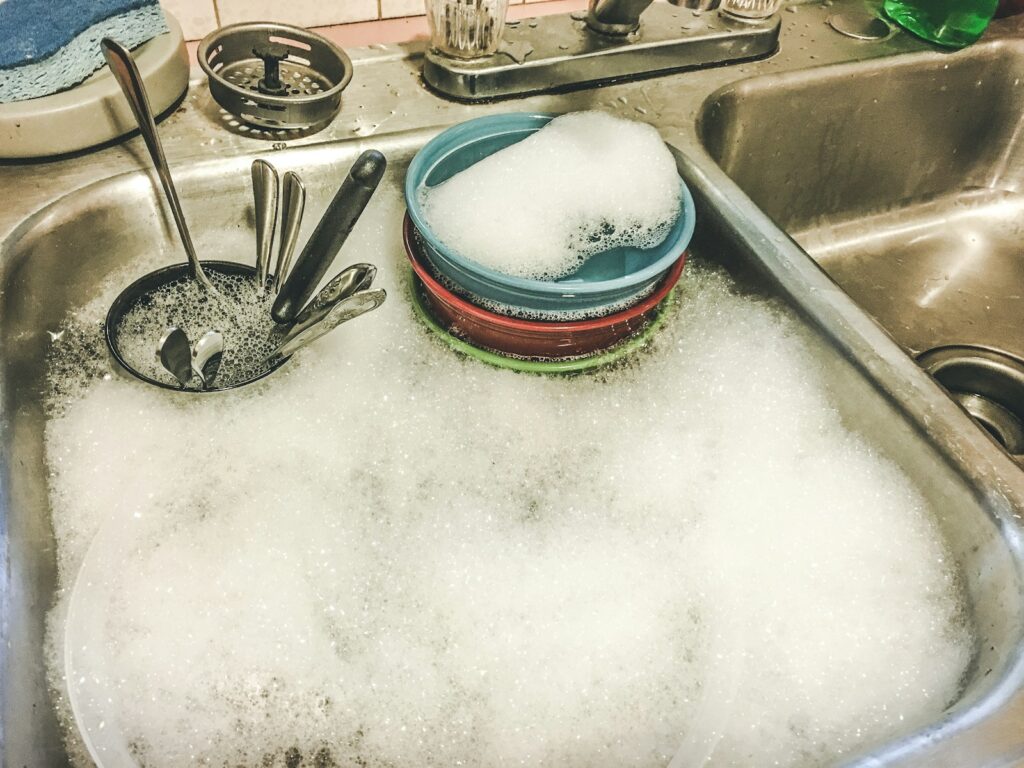
Many modern dishwashers, particularly those built after the early 2000s, are designed to handle food particles with advanced sensors and powerful spray arms. By pre-rinsing, you trick the machine into thinking the load is cleaner than it is, reducing wash intensity. This leads to residue buildup inside the machine, straining filters and spray arms. Instead, scrape off large scraps and let the dishwasher do the rest, as intended by its design.
3. Using Too Much Detergent
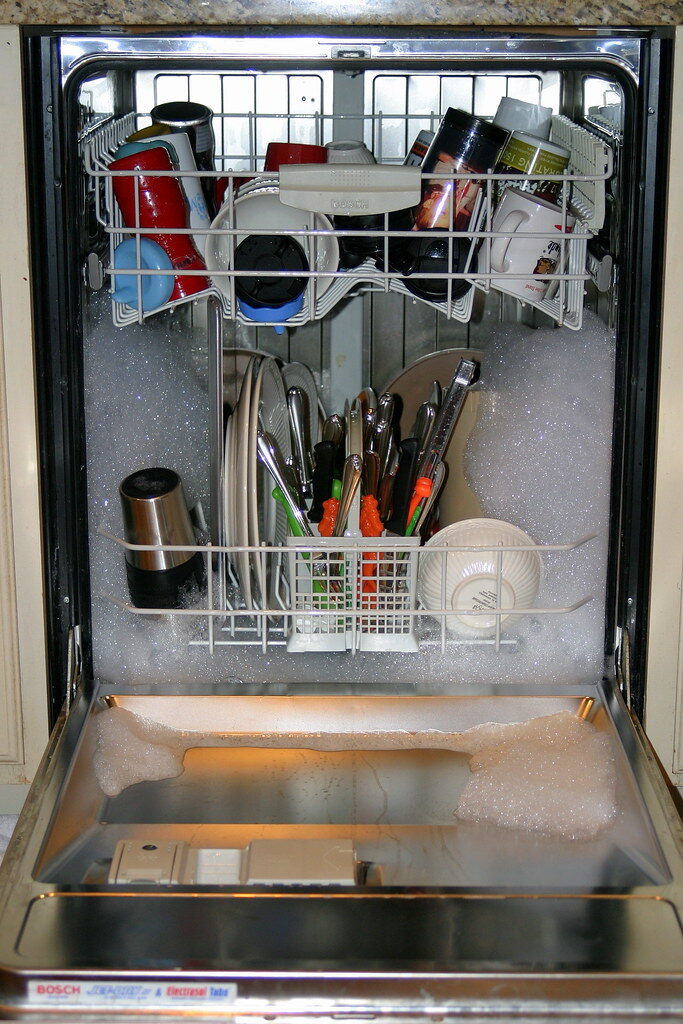
It might seem like extra soap equals cleaner dishes, but the opposite is true. Dishwashers are built to use precise detergent amounts, and overloading with soap can leave a sticky film inside the machine. This film encourages clogs in filters, damages seals, and creates foul odors over time. Since most dishwashers made after 2010 use less water, excess detergent becomes even harder to rinse away, putting your machine at risk of internal wear.
4. Ignoring the Filter
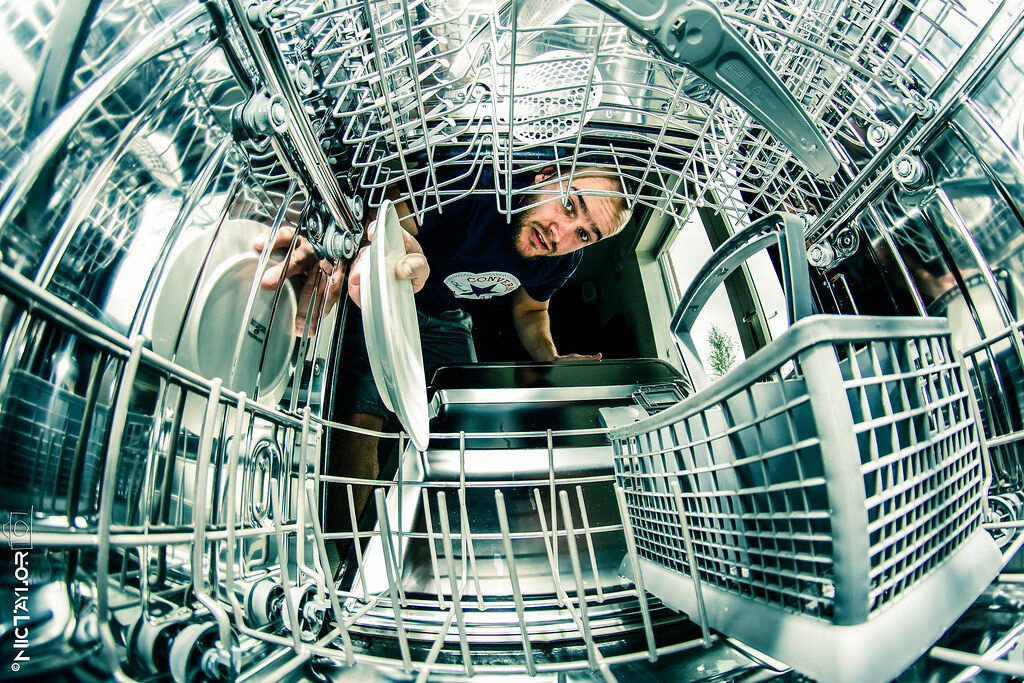
Dishwashers manufactured after the mid-2000s often come with self-cleaning or manual filters. When these filters are neglected, trapped food particles build up and restrict water flow, making the motor and pump work harder. This habit not only leaves dishes dirty but also increases the risk of clogs and mechanical strain. Cleaning the filter once a month is a simple step that extends the life of your dishwasher significantly.
5. Not Running Hot Water First
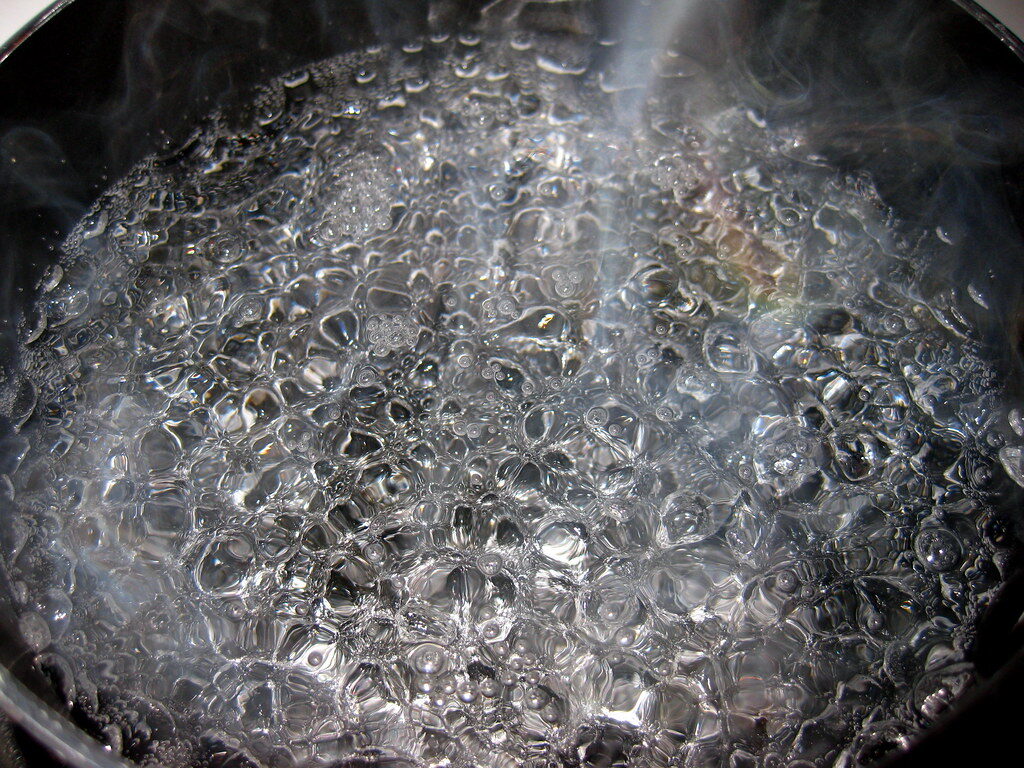
Dishwashers perform best when hot water is already flowing into them, but many users skip this step. If you don’t run your kitchen sink until it’s hot before starting the cycle, the machine fills with cold water, forcing the heater to work overtime. This habit stresses the heating element and reduces cleaning efficiency. Most models built after the late 1990s rely heavily on consistent hot water for optimal performance.
6. Skipping Regular Cleaning
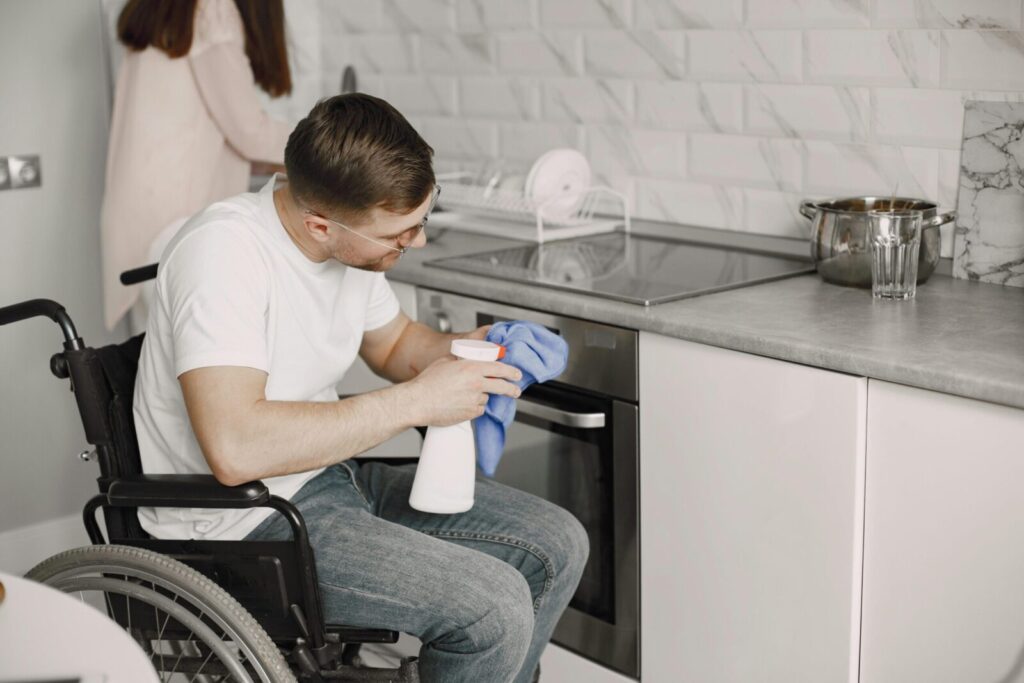
A dishwasher may seem self-cleaning, but mineral buildup, grease, and soap scum accumulate over time. Neglecting to run a cleaning cycle with vinegar or dishwasher cleaner every few weeks encourages odors, bacteria, and clogs. This extra grime makes internal components like spray arms and pumps wear down faster. A machine built to last 12 years can lose years of life simply because routine cleanings are skipped.
7. Using the Wrong Detergent
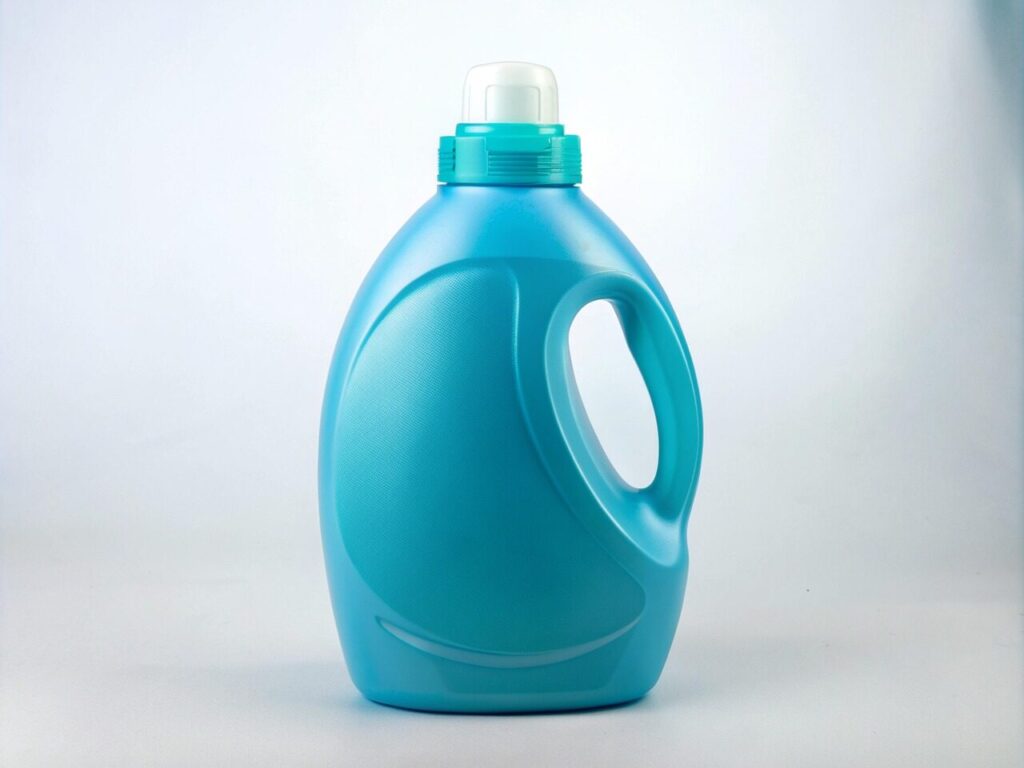
Not all detergents are created equal, and using hand soap or regular dish liquid instead of dishwasher-specific detergent can cause major problems. Soaps not designed for dishwashers produce excess suds, which strain pumps and may lead to leaks. Since most dishwashers after the early 2000s are optimized for low-suds detergents, using the wrong type shortens their lifespan drastically. Always check the manufacturer’s recommendations for proper products.
8. Leaving the Door Closed After a Cycle

After a cycle, moisture lingers inside the machine, creating a damp environment where mold and bacteria thrive. Closing the door tightly without airing it out traps this moisture, which not only affects hygiene but also degrades seals and gaskets over time. Since modern dishwashers are built with tight seals for energy efficiency, proper ventilation is essential. Leaving the door slightly ajar helps your machine last longer.
9. Running Small Loads Too Often
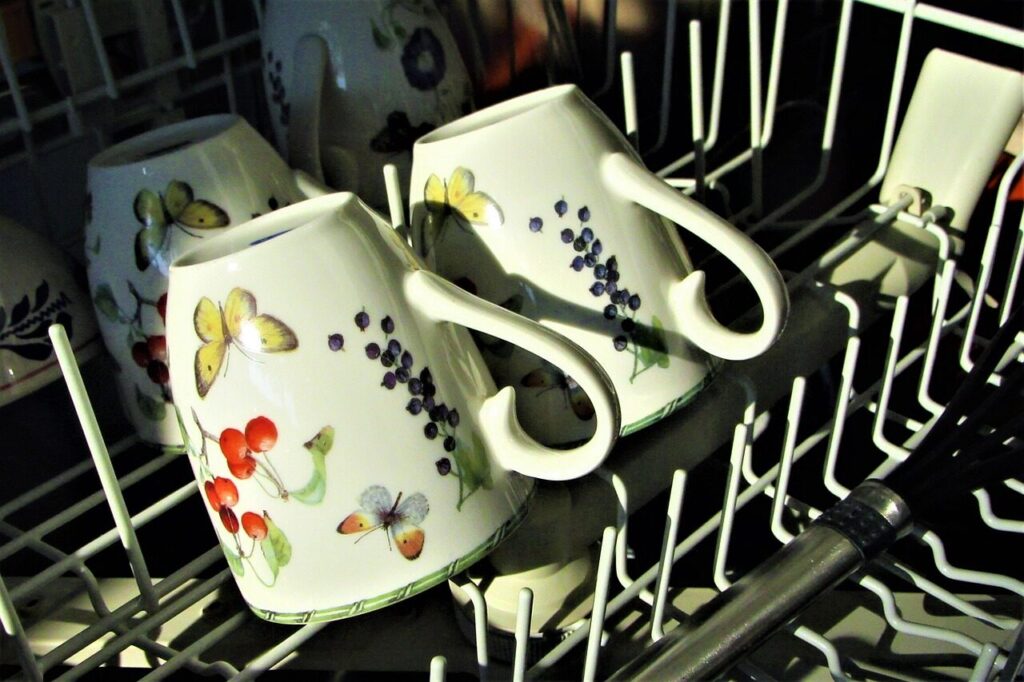
It might feel convenient to wash just a few dishes frequently, but dishwashers are designed with full-load efficiency in mind. Running half-empty loads wastes water, energy, and forces components like pumps and heating elements to operate unnecessarily. Over time, this habit wears down parts much faster. Machines built after the 1990s were engineered to save water on full loads, not constant small ones. Consolidating loads is healthier for your appliance.
10. Ignoring Strange Noises

When a dishwasher makes grinding, humming, or squeaking noises, it’s often an early warning sign. Ignoring these sounds allows small problems, like a loose spray arm or clogged pump, to develop into costly repairs. Most dishwashers built in the last 20 years have efficient but delicate parts that require attention when they start sounding off. Catching issues early can extend your machine’s life by several years.
11. Using Hard Water Without Treatment
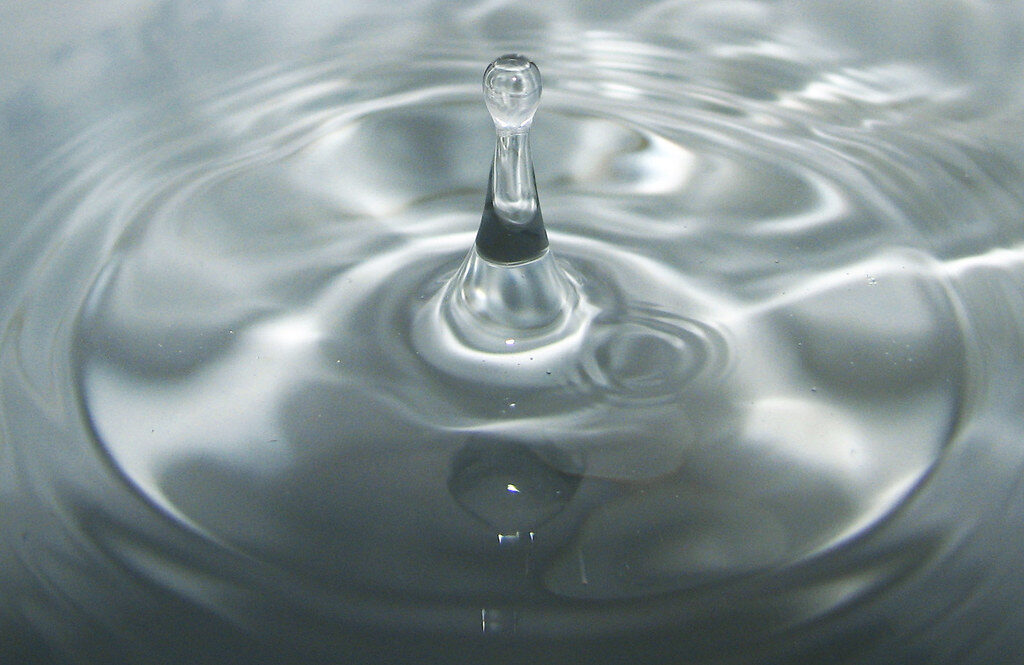
If you live in an area with hard water, mineral deposits can wreak havoc on your dishwasher. These minerals clog spray arms, dull heating elements, and shorten the life of seals. Since dishwashers made after the 2000s are often more sensitive to mineral buildup due to water-saving designs, untreated hard water becomes a serious issue. Installing a water softener or regularly using cleaning agents helps prevent long-term damage.
12. Not Checking Hoses and Seals
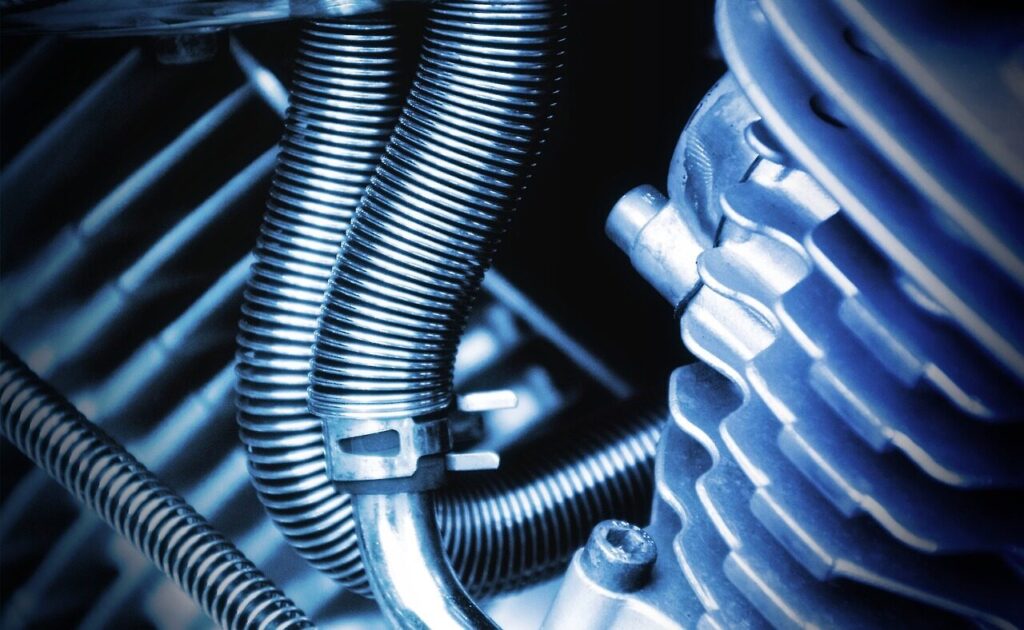
Hoses and seals may seem like minor parts, but they are vital to your dishwasher’s performance. When cracked, loose, or worn out, they cause leaks that can damage not only the machine but also your kitchen. Many people forget to inspect them until it’s too late. Given that dishwashers built after the 1990s rely on high water pressure, weak hoses and seals are more vulnerable. Regular inspection prevents early breakdowns.
Comments